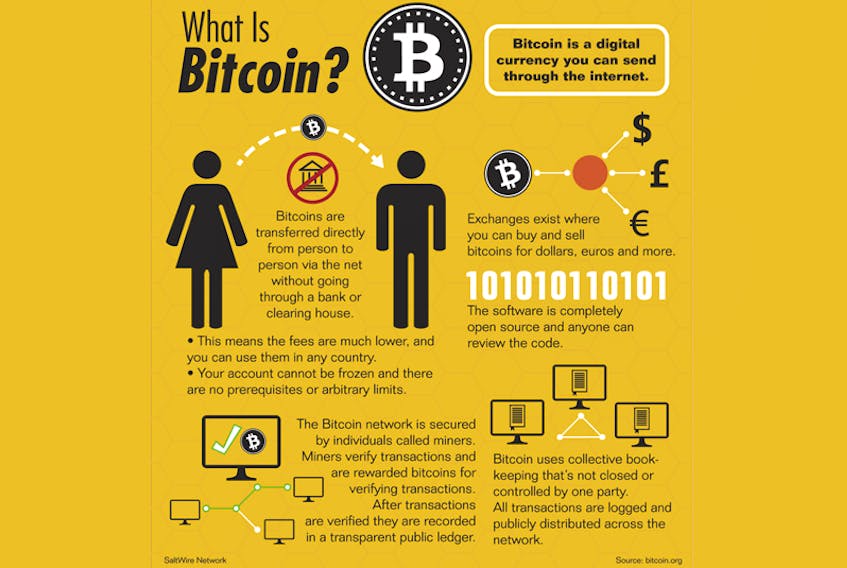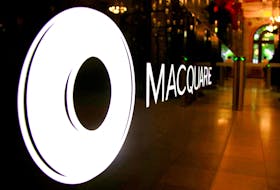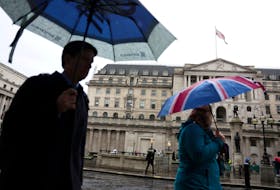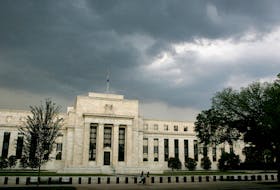Three years ago, then 20-something Ali Kazerani bought some Bitcoin, an online currency neither backed by gold nor declared legal tender by any government.
It’s just lines of code on computers.
Most famous as something computer-savvy people “mine” online, Bitcoin is unlocked during that so-called mining process by solving complex mathematical problems.
Or it can be bought at Bitcoin ATMs.
The CoinATMradar website, at www.coinatmradar.com, shows there are 325 such places to buy Bitcoin in Canada, including a handful of Bitcoin ATMs in the Atlantic region. That website shows there are Bitcoin ATMs at pizza joints in Halifax and Dartmouth, a grocery on the Bedford Highway and yet another at a convenience store in Halifax. There are also Bitcoin ATMs at locations in St. John’s and Saint John.
It's at such an ATM that Kazerani, who was then a master of business administration student at Dalhousie University, became convinced enough of the future of Bitcoin to plunk down Canadian cash in 2014 to buy some of that online currency, commonly called cryptocurrency.
It was then going for about $325 per BTC, the Bitcoin basic unit of measurement. Think of it as a Bitcoin dollar.
“People would laugh,” says Kazerani. “No one would take it seriously … and it had a very bad reputation in the media.”
They’re not laughing now. It’s Bitcoin madness.
As investors started speculating on Bitcoin throughout the world, the going rate for it climbed to dizzying heights.
“It went up to about $25,000,” says Kazerani.
As 2017 drew to a close, the cryptocurrency rallied even more, climbing to $20,350 only to slide back down to about $18,700 by the second week of January. It has dropped further but the rollercoaster ride of the Bitcoin makes it hard to state a value.
“A number of individuals are investing in this, buying at a lower price and selling at a higher price … and capitalizing on the gains,” says PwC Canada partner Peter Hargitai.
There are those who claim Bitcoin could climb to $50,000.
But there are also others, equally as informed and serious, who counter the Bitcoin craze is a bubble that could burst at any time, leaving those who invested in the high-tech currency with massive losses for their trouble.
Even Kazerani, who believes everyone should buy at least $10s worth of Bitcoin to get a better idea of what it is and who still holds an undisclosed amount of the cryptocurrency, is non-committal about its future.
“There’s a 50 per cent chance that it could go down to zero at some point in time,” he adds.
Warren Tomlin, EY Canada’s digital and innovation leader, says the marketplace where people buy and sell Bitcoin is something of the Wild West of the investment world with few regulations around it throughout the world.
Years after the Bitcoin was first introduced, the jury is still out on whether it’s even really a currency at all, or a security, or something else altogether.
In late November 2016, the accounting and auditing firm of PricewaterhouseCoopers Hong Kong seemed to accept Bitcoin as currency when it began to take it as payment for its services. The firm’s chairman for the Asia-Pacific region, Raymund Chao, reportedly said the decision to accept Bitcoin shows PwC Hong Kong is “embracing new technology and incorporating innovative business models across our full range of services.”
But PwC Canada’s operations haven't been as quick to plunge into the deep end of the cyptocurrencies swimming pool. The Canadian operations of the accounting and auditing firm, which are completely separate from those in Hong Kong, are not accepting bitcoin as payment.
“There’s nothing backing this investment,” says Hargitai. “It’s speculative, based on demand.”
As part of his master’s program at Dalhousie University, Kazerani, who now works in the financial services sector, co-authored and had published an academic paper on the topic.
His conclusion?
“It doesn’t really fit the role of a currency anymore,” he says.
A victim of its own popularity, Bitcoin has clogged up the systems that are used to exchange it from one person to another, making these slower on average than just paying with cash or even a credit card.
“It’s not easy enough to transact,” says Kazerani. “There is confusion around the language that’s used to denominate Bitcoin and what it is …. It has high transaction fees and it can take at least 10 minutes for Bitcoin from party A to reach party B.”
“That’s OK if I’m in your driveway and buying a motorcycle but it’s suboptimal if I’m in line at Starbucks,” adds Warren.
It didn’t help Bitcoin’s reputation as a currency when media reports started surfacing about kidnappers demanding to be paid in that cyptocurrency. Headlines like “Kidnappers Around the World Want Their Ransoms Paid in Bitcoin” did little to project an aura of stability and respectability.
That criminal activity, though, also helped create a demand for Bitcoin.
Cyptocurrency advocates, though, counter that Bitcoin, like other cryptocurrencies, leaves an electronic trail that, theoretically, could be tracked back to any criminals, unlike cash which disappears into the economy.
Still, the reputation lingers.
As an anonymous, decentralized cryptocurrency, Bitcoin is also seen by many as a way to make payments in funds that can’t be tracked by governments and financial institutions, allowing money to flow unhindered across borders and avoid the taxman.
That international aspect, though, may also be one of the great values, argues Kazerani.
“For someone who doesn’t live in the safest of spaces – or where the banking system is not very accessible – Bitcoin is a way to transfer money without worrying about borders or fees or seizure,” he says.
Once Bitten
Welcome to the digital version of the wild west of banking

STORY CONTINUES BELOW THESE SALTWIRE VIDEOS








